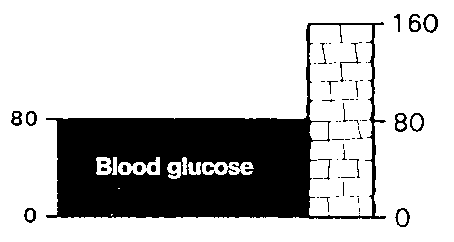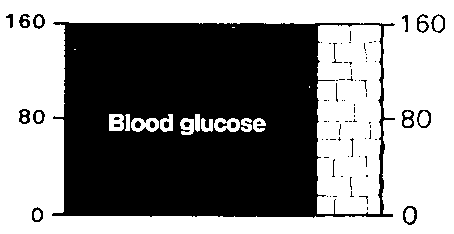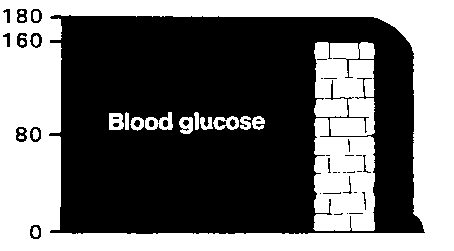When the blood glucose level is normal (about 80 mg/dl (4.4 mmol/l)) the "renal dam" holds the sugar back. Sugar cannot be detected in the urine.
|

|
Even when the blood glucose level rises to 160 mg/dl (8.9 mmol/l) - twice the normal level - you will generally not find any sugar in the urine.
|

|
Only when the blood glucose level rises above 160 mg/dl (8.9 mmol/l) - for instance when it reaches 180 mg/dl (10 mmol/l) - is sugar excreted in the urine.
People who do not have diabetes never reach such high blood sugar levels.
Click here to simulate an example case in which sugar is found in the urine
|

|






